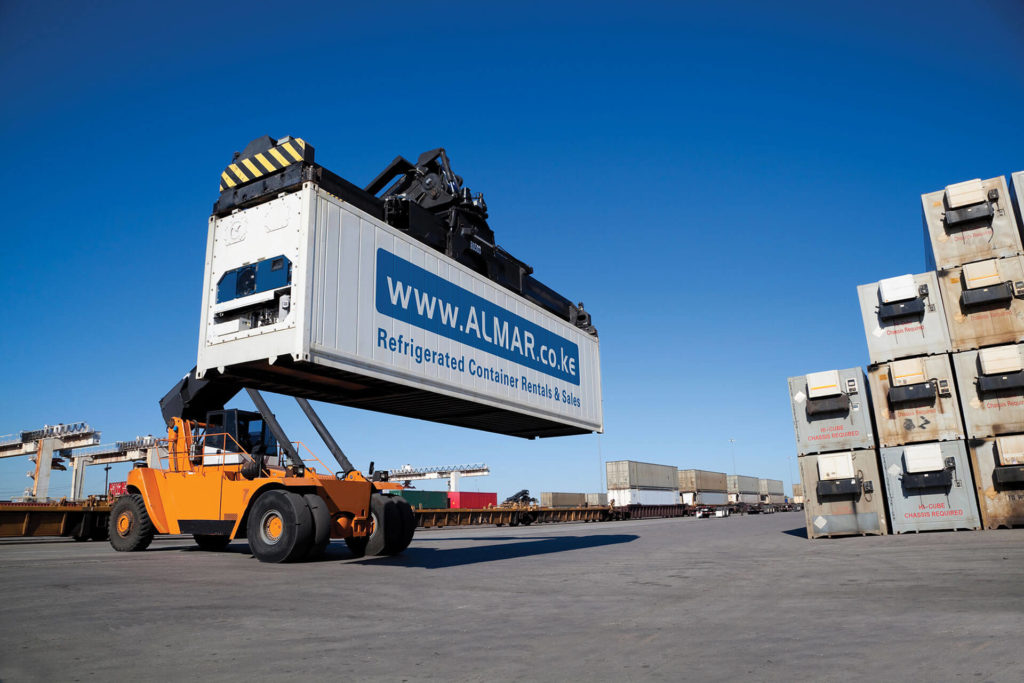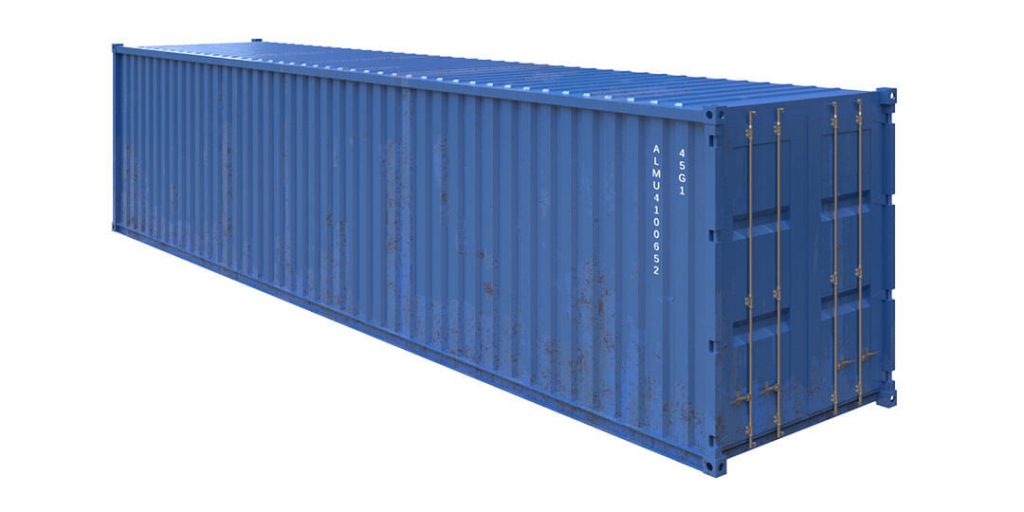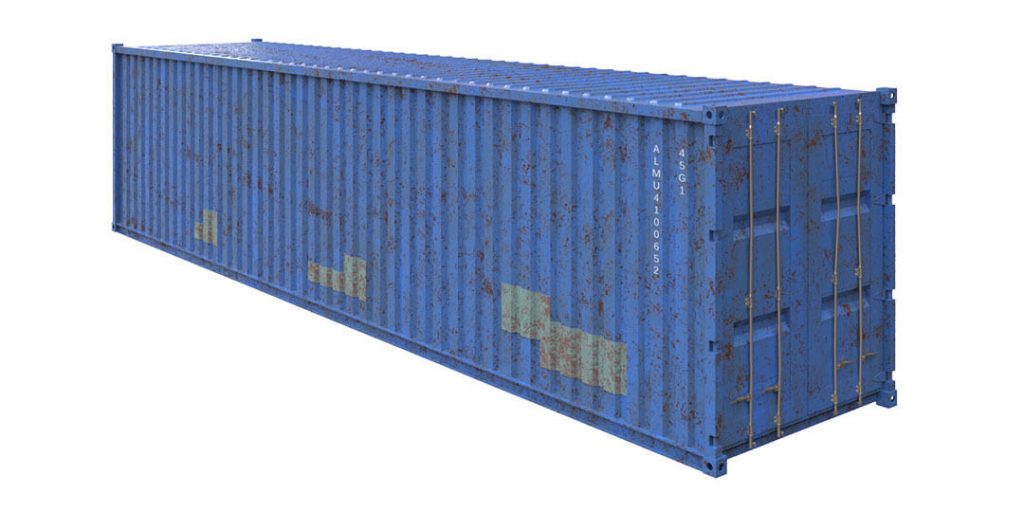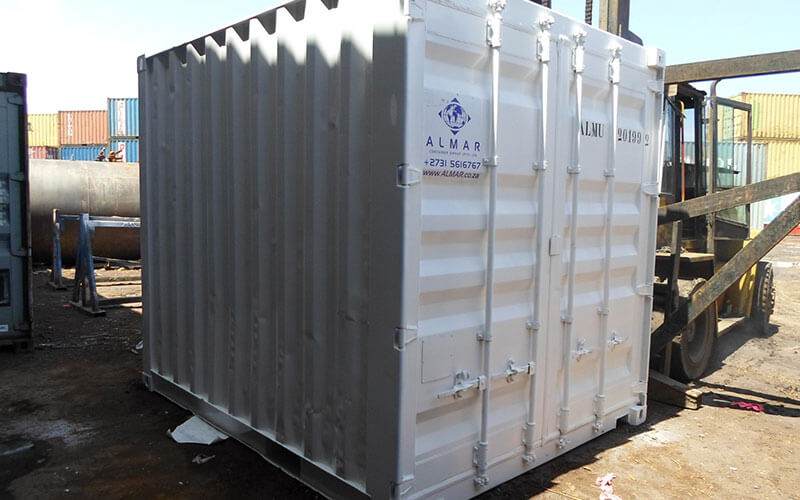You came to the right page if you are keen to know when hiring a container makes more sense than buying one outright. We’ll also share the most popular uses our customers put our containers for hire to, and the pitfalls to watch out for when you hire a container over the internet.
Container rentals are a rising success story in South African markets, and beyond in places like Namibia, Kenya, Tanzania, Uganda, Saudi Arabia and Dubai. Our ultimate guide to container rental provides all the answers to everything you need to know.
This is a far reaching article sharing many insider gems. As you read it through you will learn about potential pitfalls you may not know, and how to avoid them when hiring a container.

We recommend you don’t rent a container without a vision going forward into the future. That’s because you can’t modify or adapt something you don’t own. You basically make a trade-off between what you really want, and what’s available in terms of containers for hire ‘off the peg’.
If you then decide to stop hiring a container later in favour of an outright purchase the rental you paid becomes an expense you might have avoided. On the other hand you could find yourself in trouble if you purchase a container outright without putting a foot in the water with a rental container first.
This is one of the factors behind the success of our container rental offering. We want you to be sure renting a container is the right thing to do, and we’ll be delighted to assist with advice.
We have clients who rent containers for various reasons, including workshops, small factories, fitment centres, cold storage, liquid storage, you name it. They come to us for rental top ups to meet seasonal spikes.
That’s the beauty of hiring a container. You have flexibility on tap when it comes to ‘small buildings’. When you don’t need them anymore you just send them back subject to the terms of the rental agreement.
Hiring a container is often a last-minute decision for a client when they discover they don’t have enough brick and mortar space for a key activity. A senior manager in a spot may instruct their assistant to rent a container without knowledge of how the industry works.
Their hapless assistant drops whatever else they were doing and googles “rent a container” without fully understanding the purpose to which it will be put. It’s quite easy to imagine them falling for a spam supplier willing to send whatever they have in stock.
Then two days later a somewhat battered container arrives, if he wasn’t scammed, on a rental lowbed trailer and is summarily off-loaded in the street outside the factory yard. The manager forgot to mention they wanted a refrigerated one for uncooked meats. What happens now?
The accountant’s blood pressure rises when they discover the container shipped in from 863 kilometres away, and the transport cost more than doubles the bottom line on the invoice.
If you are investigating container rentals perhaps you should choose your supplier with the same care as you choose the restaurant for your anniversary and hopefully your life partner too.
It’s one thing to order a tee-shirt on Amazon and get the wrong size. However, you could suffer a business loss if the supplier sends the wrong container or nothing at all arrives.
We’re not suggesting you shouldn’t hire a container on Gumtree or similar. Just saying please make sure you don’t get hooked by a fly-by-night company.
You also need to be careful the price includes delivery to your site, or you know what this will cost. Cheap containers for hire can become expensive when you add in the overheads.
We’re not saying the above ‘comedy of errors’ is typical of our industry. Every sector has its scammers and con artists.
Choose a container supplier with an enviable reputation in your business community to avoid being duped, and here’s a blog post you might find informative - Container Fraud: Ten Tips to Keep You Safe


Quite a few businesses go off the rails after they fail to ‘stick to their knitting’ and dash off into something new on an impulse. A famous clothing retailer glimpsed ‘Davy Jones Locker’ after a decision they likely regret.
In case you don’t know, that locker is an idiom for the bottom of the sea: the state of death among drowned sailors and shipwrecks.
Successful businesses chart their courses carefully to skirt around these annoying problems. That’s why we prefer new leads, enquiring after our containers for hire, to have mapped them into their overall business plans.
Quite a few of our customers are project types. They prefer short-term container rentals because nothing lasts forever in their line of business.
Others are companies on an upward growth spiral needing more space or accommodation, but wanting to be sure their operation will sustain before they commit to a building.
Our third group comprises small start-up businesses and mom and pop shops. They appreciate the flexibility of trying different locations, before they finally decide where to settle down.
Hiring a container compared to leasing a building matches these needs perfectly. Containers are a particularly effective strategy, because they can ‘move their buildings around’ at relatively low cost.
Moreover, they have kept their capital intact and have the cash flow they need to get their business ‘on the road’ and up and running. This makes so much more sense than investing in concrete, bricks and cement.
Customers who rent a Container for the first time from us may find their scratched and slightly dented condition off-putting. Never fall for the mistake of paying more than you have to.
Tell your supplier how you plan to use it so they can find the best balance between the appearance of the container and the price you pay.
A quick clean up may be all that’s needed to convert a used container into a respectable store for the VAT returns you have to keep and piles of old invoices.
In fact, there’s no need at all to consider new containers for hire unless there’s a danger you might otherwise dent your brand or discourage your customers. To help you decide, here are the industry standards for different grades of containers:
These are generally from Asia where they make most containers. It has arrived with its first cargo and is state of the art in the industry. Check the info plate on the door to verify age.
The locks and seals are in good shape making it wind and water tight and would probably pass a marine survey inspection. In this category however, there can be sub categories like B-grade and C-grade. Basically, some cargo-worthy containers are easier on the eyes than others.
This means someone has attempted the job for you. Just be careful of hiring a container from someone who used loads of filler and did a cheap paint job. If it deteriorates while on hire you, you may lose your deposit.
Always inspect a container rental carefully before you accept it. You might want to look at taking out insurance and placing it in a secure location because it becomes your responsibility to care for it.
"Life is like riding a bicycle. To keep your balance, you must keep moving."
- Albert Einstein



In writer George Carroll’s book ‘Alice in Wonderland’ the cutest of little girls is in Wonderland down a tunnel. After she asks direction from a grinning Cheshire Cat the conversation goes as follows:
“Would you tell me, please, which way I ought to go from here?”
“That depends a good deal on where you want to get to,” said the Cat.
“I don’t much care where” said Alice.
“Then it doesn’t matter which way you go,” said the Cat.
“So long as I get somewhere,” Alice added as an explanation.
“Oh, you’re sure to do that,” said the Cat, “if you only walk long enough.”
Many businesses wither and die for the simplest of reasons they don’t have a current business plan. Therefore it follows, if you want your container rental to be a success you must have a plan for it to.
Before you rent a container ask your team the following questions. If you don’t get consistent answers the chances are your team is in wonderland.
If you are able to provide this information then a supplier should be able to tell you which of their containers for hire would suit you best.
"If you don’t know where you’re going any road will take you there."
- Singer George Harrison, Any Road
It obviously makes sense to purchase, rather than hire something because you save in the long run and own an asset. However, many of our clients prefer hiring a container because their needs are temporary or not yet fully defined. There are of course notable exceptions:
Their needs may vary from project to project, whereas a shipping container is hardly flexible in terms of dimensions. If they are outside-event function organisers, for example they may have more to store for a wedding as opposed to a marathon race.
The obvious advantage of container rentals is you can change your mind in terms of size and type as you go along. But that’s not all. You avoid capital outlay and have expenses you can off-set against income.
Moreover, storage containers are unique among other forms of temporary accommodation. That’s because they are robust, weatherproof and securely lockable too. Prefabricated wooden buildings and marquee tents simply cannot compare with a well-founded container rental.
"I like to keep my options open. I'm known for changing my mind."
- Doug Liman, Film Producer


Containers come in various lengths, although the commonest ones are 20 feet (6 meters) and forty feet (12 meters) after rounding. They do however have standardised widths and heights, so they can stack in tiers on ships, and gantry’s can lift them wherever they go.
Their standard widths and heights are 8 feet (2.4 m) wide, and 8 feet 6 inches (2.6 m) high. There are, however exceptions. Always check carefully with your supplier before you rent a container.
It can be a false economy ordering a longer container ‘just in case’. Your transport costs will be higher and you can’t bend or fold a container either! Many of our customers rent a series of small containers to suit different phases in their business cycles.
The two commonest container types are ‘standard dry storage’ and ‘refrigerated’ ones. The latter are obviously more expensive. However, when you apply electricity you have a portable cold room!
These ‘reefer’ containers, as the industry calls them come to our shores from almost every country in the world. Play it safe and ask the supplier to confirm their plant can run off your local electricity supply.
Standard dry storage containers are long metal boxes with doors at one or both ends. Some have the bonus of floors and ceilings. Other containers for hire have had doors and windows added to their sides.
Make sure you define your needs clearly. Then shop around until you find a container rental best suited to your needs.
"When I was young I thought that money was the most important thing in life; now that I am old I know that it is."
- Oscar Wilde, playwright, satirist
Containers are tough. They can take ‘the knocks’ and don’t need kid gloves. Your smartest decision could be hiring a container nearby because long distance transport could make it cheaper to purchase outright.
Most used containers end up in yards like ours after reaching a certain number of years in service. For example, after having been used all over the world for say 10 years the owner of the container will decide to sell it.
Situations like these ensure a steady supply of used container rentals at our depots in South Africa, Namibia, Kenya, Tanzania, Uganda, Dubai, and Saudi Arabia. Most depots offer road shipment services using specialized trucks. You will also find commercial transporters queueing up to assist.
More than half the cost of a passenger aircraft flight accrues during take-off and landing because that’s when they burn most fuel. Between these departure and arrival points they cruise along, and this applies to container deliveries too.
When hiring a container consider the transport implications, make sure you know what type or size of truck you require, days and times that both the pick up and drop off locations are accessible, and the complete route.
"Being good in business is the most fascinating kind of art. Making money is art and working is art and good business is the best art."
- Pop Artist Andy Warhol

Container rental is due monthly upon receipt of the statement. By hiring a container the customer agrees it is in ‘good and satisfactory condition’ at the time of receipt.
Receipt occurs when the container rental company hands the container over to the client or their agent. It’s hence in both parties’ interest to sign an agreement recording the actual condition prior to this.
The contract requires the client to take proper care of the container, keep it in their possession, and report any damage, loss or theft.
In the event the client defaults on any of the terms (the above is a shortened summary) then they are responsible for any damage and the costs of recovery.
It therefore follows that inspecting the container carefully and taking photos is essential before accepting responsibility.
"Truth is confirmed by inspection and delay; falsehood by haste and uncertainty."
- Senator Tacitus, Roman Empire
This wise observation brings us to the end of our summary how containers for hire work, and what to be aware of before you go ahead and rent a container. If you choose wisely you should give your business a head start to achieving your goals.
However, there are pitfalls as we have pointed out. We close by repeating those wise words of Publius Cornelius Tacitus who passed on in 120 AD. Truth is confirmed by inspection and delay; falsehood by haste and uncertainty.
But then that’s true of all avenues of life including our favourite topic, containers.